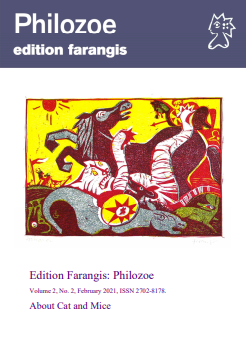عبيد زاکانی
'Obayd-e Zakani
The Persian writer Khajeh Nezameddin Obaydullah Qazvini known as Obayd-e Zakani or Obayd-e Zakan, lived in the 14th century. He was born in 1300 in suburban Qazvin, and died either in Isfahan or Baghdad in 1371 AD.
In Persian his name is written: عُبید زاکانی ، عُبید زاکان.
Zakani is most famous for his critical approach, that he put in satirical texts such as 'Moosh-va-Gorbeh' (The Mouse and the Cat), which describes the uphill battle of the weak against the 'strong';.
Tyranny and oppression reigned during Zakani's time. Amid the widespread fraud and corruption that dominated even the intellectual circles of his time, Obayd expressed his frustration with the injustice and discrimination that infested his society.
Zakani was not only a critic though, he was also a renowned literary figure of his time, considered to be most accomplished in literary style. He lived in Shiraz during the reign of Sheikh Abu Ishaq where he was pursuing studies in literature and arts. He later returned to his hometown of Qazvin, where he was appointed as a judge and where he also worked as a teacher.
His works include both poetry and prose. Some of his works include 'Oshaqnameh' (Lovers' Letter), 'Akhlaq al-Ashraf' (Ethics of Aristocrats), 'Dah Fasl' (Ten Chapters), and 'Sad Pand' (One Hundred Advices).
Obayd-e Zakani is today acknowledged to be one of the great writers of the Timurid period.

